Bourbon isn’t exactly known as the kind of alcohol that you finish a bottle of in one sitting. Unless, of course, you enjoy it with a bunch of friends. And if you drink bourbon only occasionally, the half-open bottle will probably sit in storage for quite a long time. And when you stumble upon it after half a year, it’s only reasonable to start thinking whether it can go bad or not.
Or perhaps you got an expensive bottle of bourbon as a gift, and you’re thinking about holding onto it for longer, so it gets even better. If that’s the case, let me tell you right now that won’t quite work, as bourbon doesn’t age in the bottle.
In short, if you have any questions about spoilage, shelf life, or how to store this variety of whiskey, this article is for you. And to start things off, let’s talk about whether or not bourbon goes off.

Can Bourbon Go Bad?
Well, it probably can, at least theoretically. If you would leave the bottle unsealed and added a bunch of contaminants inside, after a dozen of years it could go bad. But if you keep bourbon sealed in storage, it won’t.
Bourbon, just like other types of whiskey, or distilled spirits as a whole, doesn’t spoil. The alcohol content makes the liquid safe from any microorganisms that could cause it to spoil. But if by any chance you noticed that your bourbon developed and off odor, or suddenly changed in taste, discard it. It’s highly unlikely to happen, but if it did, proceed like you would with any other type of food.
Knowing that it doesn’t spoil, does it mean that it lasts forever in good quality? Not necessarily. Let me explain.
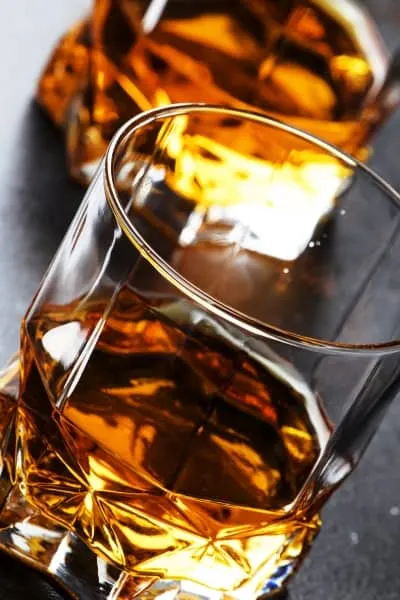
How Long Does Bourbon Last?
Before we talk about shelf life, let’s briefly talk about the aging process and how it works for bourbon. I already mentioned that bourbon doesn’t age once bottled, so allow me to expand on that.
Bourbon is aged in new, charred oak barrels ([WIKI]), and the moment it’s out of the barrel, that process ends. Like vodka, rum, and other spirits, it doesn’t get better or develop taste after bottling. So saving it for years doesn’t make that much sense. Unless, of course, it’s an expensive bottle and you plan on selling it for a better price. But if you’re not well versed in bourbon, I wouldn’t try that.
A good way of thinking about bourbon is that once it’s bottled, it freezes in time until you open it for the first time. So if you own one that was bottled 10 years ago, and you open that bottle today, the alcohol should be pretty much as good as it was 10 years ago. And if you wouldn’t open it today and decided to keep it for another 10 years instead, nothing would change about it in the following decade. But once you open the bottle for the first time, things change a bit.
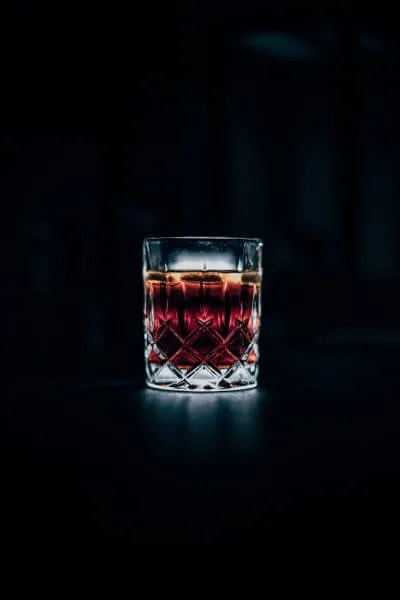
The moment you unseal the bottle, the alcohol gets access to fresh air, and some of the most volatile compounds are released. Exactly the same thing happens for all whiskeys. That’s why some people find the whiskey better the next day after first opening it.
When it comes to shelf life, two things change once you open the bottle. First, even a sealed bottle isn’t perfectly sealed so there will be some evaporation over time. And since alcohol evaporates more readily than water, it will super slowly start to lose its strength. Of course, if you won’t leave the bottle unsealed for a few days, you likely won’t notice any effects of evaporation for years.
The second thing is the presence of oxygen. Oxygen alters the taste of spirits. If you’ve ever left an unfinished glass of whiskey overnight, you know what I’m talking about. It doesn’t taste quite the same, and that’s the result of both evaporation and oxidation on steroids. So you know what might happen if you don’t take good care of your opened bottle of bourbon.
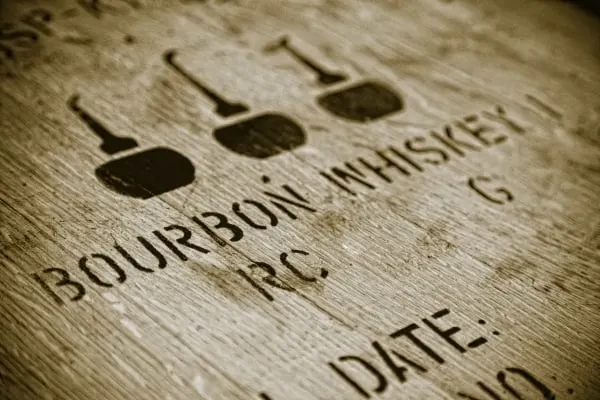
In short, the more oxygen in the bottle, the quicker it alters the alcohol’s taste. So if you unseal the bourbon, pour yourself a drink, and put that bottle back in storage, it should retain its flavor for years. But if there’s only a drink or two worth of whiskey in the bottle, its taste will degrade much faster. Such a bourbon in a year from now you might not taste that well as it does now. Fortunately, there are some storage tricks to keep the quality of this alcoholic drink for longer.
Let’s recap what we covered in terms of shelf life. Unopened bourbon has pretty much indefinite shelf life. As long as the seal is intact, the alcohol should be as good as new. Once you open the bottle, the liquid starts to slowly degrade in quality. The speed of the degradation process depends on how you store the alcohol and how much is left in the bottle. The closer the bottle to full, the longer the bourbon lasts.
Unfortunately, there’s no way to calculate for how long will your opened bottle taste well. It depends on too many things, plus it’s also a matter of personal preference. Some of you might be quite sensitive to the flavor, notice even a minor change, and decide to get rid of it. Others won’t be as sensitive and will find even somewhat “stale” bourbon okay to drink.
Knowing that, let’s talk about how to take care of the bourbon so it keeps quality for as long as it can, even if you opened it a long time ago.
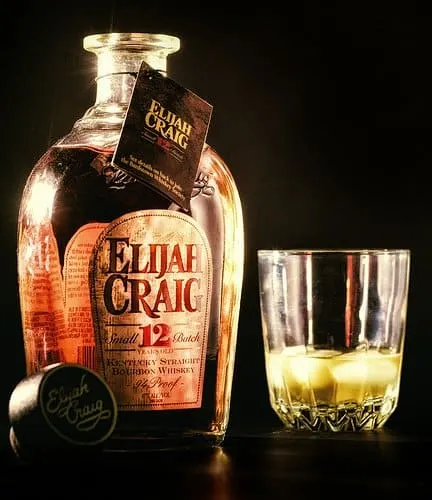
How To Store Bourbon?
Storing unopened bourbon isn’t rocket science. Put the bottle in a dark and cool place, and you’re done. It can sit years in a pantry or a kitchen cupboard and will be just fine in there.
Once you open the bottle, there are a few things worth knowing. First, keep the bottle sealed tightly when not in use. I know those crystal whiskey decanters look really good in a liquor cabinet, but they usually don’t provide a good seal. If you expect to finish the bottle within a few months, it’s probably okay to use one of these. But if you want it to last years, keep it bottled.
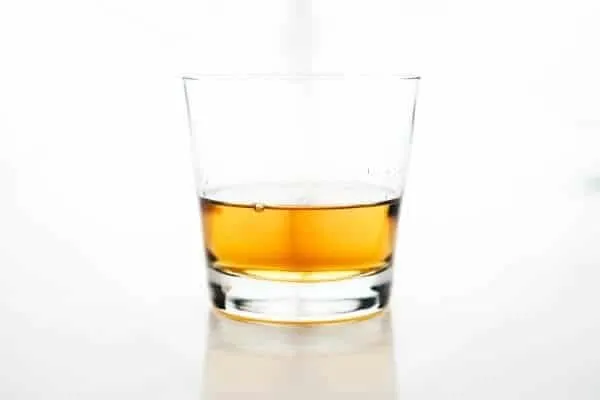
Next thing is that the bottle shouldn’t sit in the sunlight. So even if you choose a liquor cabinet, make sure the liquor isn’t exposed to direct light the whole day. As mentioned earlier, a dark cabinet is optimal.
Once the bottle is less than half-full, consider transferring the alcohol to a smaller one. Remember how I talked about oxygen affecting the taste? This strategy is to reduce that effect. Of course, it only makes sense to do that if you expect to keep the bourbon around for a long time. If you will finish it within a few months, it’s not worth bothering with that.
Last but not last, temperature. Pretty much all alcohols like being stored in a cool place and don’t like temperature fluctuations. Same thing with bourbon. If you prefer to serve it cold, feel free to refrigerate it. Or instead of chilling it in the fridge, just serve it on the rocks. But remember it doesn’t require refrigeration upon opening.
In a Nutshell
- unopened bourbon has a virtually indefinite shelf life
- once you open the bottle, the alcohol starts to very slowly degrade, depending mostly on whether or not it’s sealed and how much is in the bottle
- if you expect to store a less than half-full bottle for a prolonged period, pour the liquid into a smaller bottle
References
- [WIKI] Bourbon